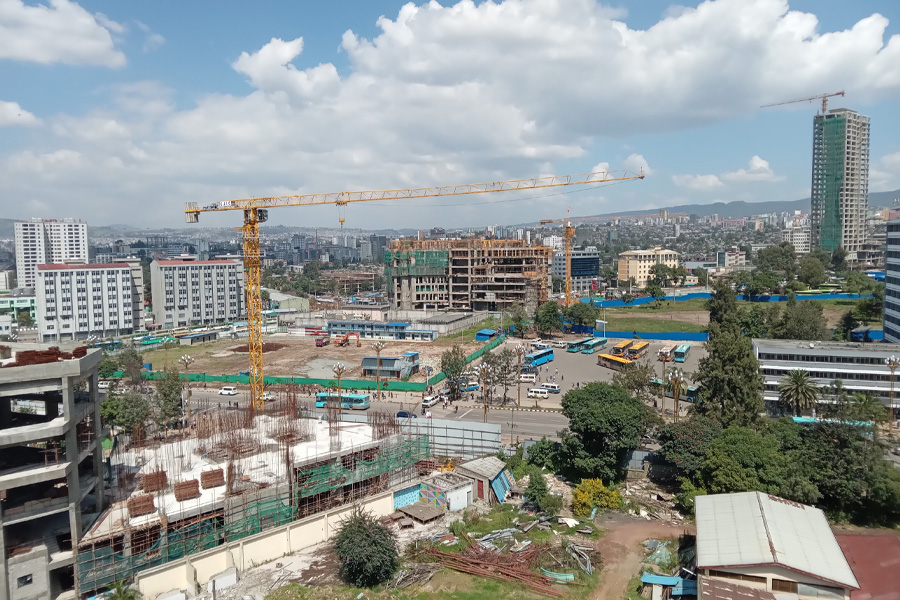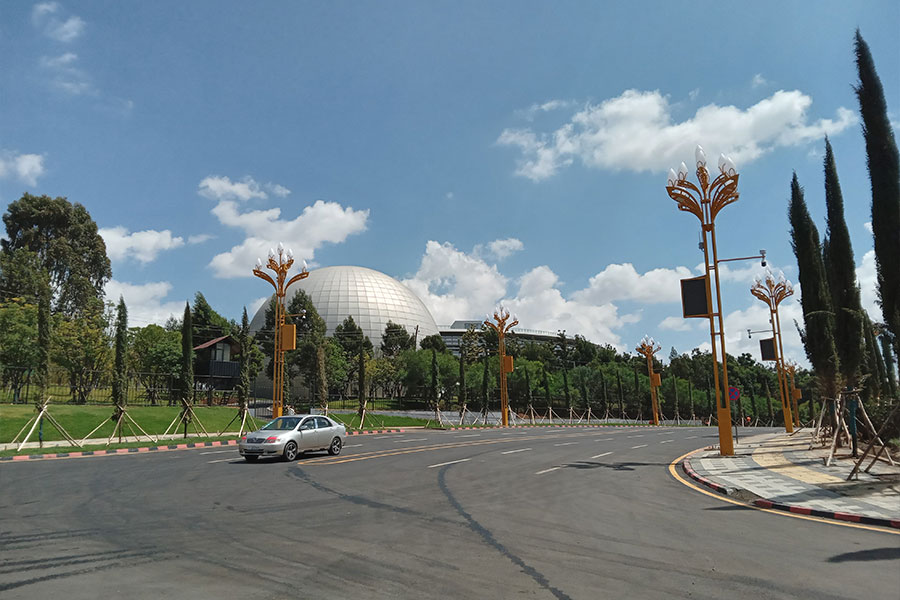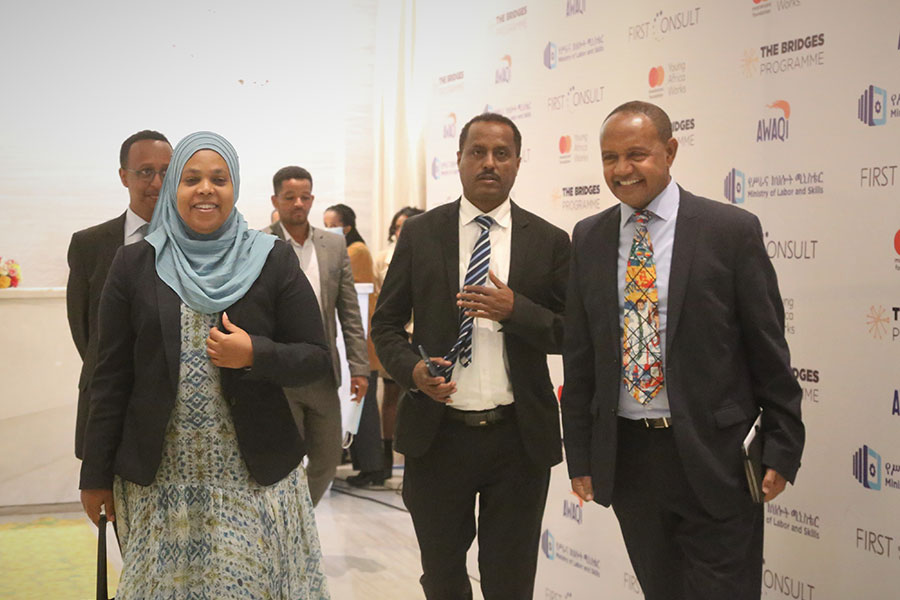
Agenda | Jul 22,2023
May 11 , 2024
By Silke Bollmohr , Harun Warui
The world is confronting an unprecedented food crisis, exacerbated by the COVID-19 pandemic, Russia's war against Ukraine, and worsening climate conditions. However, the problem is most acute in Africa, where 61pc of the population faced moderate or severe food insecurity in 2022. At a moment when effective solutions are urgently needed, policymakers are once again coalescing around the misguided belief that increased use of mineral and synthetic fertiliser is the key to boosting agricultural productivity and ending hunger on the continent.
This approach can be traced back to the Abuja Declaration on Fertiliser for the Africa Green Revolution that African Union (AU) leaders endorsed in 2006. The goal was to reverse the continent's poor yields by boosting fertiliser use from eight to 50Kg per hectare within a decade. Spearheading this effort was the Alliance for a Green Revolution in Africa (AGRA), an initiative backed by the Bill and Melinda Gates Foundation and other major donors. Working closely with large agribusinesses like the Norwegian-based chemical company Yara, AGRA championed the idea that distributing synthetic nitrogen fertiliser would solve Africa's agricultural challenges.
This singular focus on synthetic fertiliser use has failed to address the complex realities of farming in Africa.
A recent assessment of AGRA's projects in Burkina Faso and Ghana found no evidence that providing chemical inputs and high-yield seeds increased production and higher incomes for smallholder farmers. Instead, many are now more vulnerable and indebted after coming to rely on expensive synthetic pesticides and fertilisers, the prices of which soared following Russia's invasion. These farmers have become locked in a cycle of dependency, while companies like Yara reap substantial profits.
Zambia is a good example. Despite being one of Africa's largest consumers of synthetic nitrogen fertiliser, the country has not experienced a corresponding reduction in hunger and malnutrition. The view that more fertiliser means less hunger fails to address the systemic barriers to food security, such as affordability, and exacerbates existing challenges, such as soil degradation.
Specifically, synthetic nitrogen fertilisers disrupt the delicate balance of the soil ecosystem – the very foundation of sustainable agriculture. These inputs have been shown to reduce the abundance and diversity of beneficial microorganisms, such as mycorrhizal fungi, which are essential for nutrient cycling and plant health. When these symbiotic relationships are disrupted, soil resilience and fertility decline.
According to the World Bank, Africa loses around three percent of its GDP annually due to nutrient depletion and general soil degradation.
Excessive fertiliser use has far-reaching environmental consequences. It undermines crop productivity and thus devastatingly affects millions of smallholder farmers' livelihoods and food security. It contributes to nitrogen pollution in water bodies, causes biodiversity loss in aquatic systems, and pushes the planet past safe limits for humans. Perhaps most worryingly, research indicates that the production and application of synthetic nitrogen fertiliser account for roughly two percent of total global greenhouse gas (GHG) emissions.
As a result, chemical companies like Yara are switching to "green fertilisers," which are produced using hydrogen derived from renewable energy sources rather than fossil fuel-based inputs. This allows them to continue advocating for synthetic fertilisers as a solution to food insecurity in Africa (and, by extension, maintaining and expanding the market for their products), even as research points to the shortcomings of such an approach.
Using green hydrogen to produce fertiliser can indeed mitigate GHG emissions. However, while the production process may be less carbon-intensive, it is still highly energy-intensive. Applying fertiliser can release vast surges of nitrous oxide—a potent GHG—into the atmosphere and can still cause soil degradation and water pollution, regardless of how it is produced. By promoting "green fertiliser" as a panacea, the industry is engaging in greenwashing—using the veneer of sustainability to protect its interests.
Last week, the AU's Africa Fertiliser & Soil Health Summit in Nairobi addressed soil degradation and food insecurity. The involvement of industry giants like Yara and organisations like AGRA suggests continued adherence to a flawed model that has consistently failed to alleviate hunger and malnutrition, a concern shared by the Alliance for Food Sovereignty in Africa, representing more than 200 million stakeholders. But instead of focusing on boosting short-term soil fertility, substituting one chemical with the other, and thus endorsing the fertiliser industry's self-serving narratives, the summit should have considered longer-term goals, such as improving soil health and soil life, strengthening the resilience of farming communities, and ensuring the sustainability of food systems.
Productivity can be maintained without industrial nitrogen fertilisers, as shown in long-term trials across Africa. Alternatives include diversifying cropping systems, producing organic fertiliser, and planting legumes. Policymakers and stakeholders must move beyond the simplistic promotion of synthetic fertilisers, even those labelled as "green," and embrace a more transparent and evidence-based approach. Only then can we truly address the root causes of hunger and malnutrition in Africa and worldwide.
PUBLISHED ON
May 11,2024 [ VOL
25 , NO
1254]

Agenda | Jul 22,2023

Radar | Jun 29,2025

In-Picture | Nov 16,2024

Radar | Aug 20,2024

Radar | May 31,2025

Fortune News | Aug 12,2023

In-Picture | Feb 03,2024

Commentaries | Jan 07,2024

Radar | Jul 17,2022

Fortune News | Oct 25, 2024

My Opinion | 132105 Views | Aug 14,2021

My Opinion | 128507 Views | Aug 21,2021

My Opinion | 126435 Views | Sep 10,2021

My Opinion | 124046 Views | Aug 07,2021





Dec 22 , 2024 . By TIZITA SHEWAFERAW
Charged with transforming colossal state-owned enterprises into modern and competitiv...

Aug 18 , 2024 . By AKSAH ITALO
Although predictable Yonas Zerihun's job in the ride-hailing service is not immune to...

Jul 28 , 2024 . By TIZITA SHEWAFERAW
Unhabitual, perhaps too many, Samuel Gebreyohannes, 38, used to occasionally enjoy a couple of beers at breakfast. However, he recently swit...

Jul 13 , 2024 . By AKSAH ITALO
Investors who rely on tractors, trucks, and field vehicles for commuting, transporting commodities, and f...

Jul 12 , 2025
Political leaders and their policy advisors often promise great leaps forward, yet th...

Jul 5 , 2025
Six years ago, Ethiopia was the darling of international liberal commentators. A year...

Jun 28 , 2025
Meseret Damtie, the assertive auditor general, has never been shy about naming names...

Jun 21 , 2025
A well-worn adage says, “Budget is not destiny, but it is direction.” Examining t...

Jul 13 , 2025 . By YITBAREK GETACHEW
The Addis Abeba City Revenue Bureau has introduced a new directive set to reshape how...

Jul 13 , 2025 . By BEZAWIT HULUAGER
Addis Abeba has approved a record 350 billion Br budget for the 2025/26 fiscal year,...

Jul 13 , 2025 . By RUTH BERHANU
The Addis Abeba Revenue Bureau has scrapped a value-added tax (VAT) on unprocessed ve...

Jul 13 , 2025 . By NAHOM AYELE
Federal lawmakers have finally brought closure to a protracted and contentious tax de...